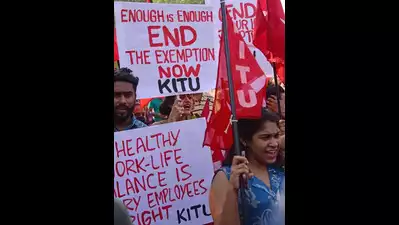The Jammu & Kashmir and Ladakh High Court has strongly criticized the government’s decision to terminate a contractual Anaesthetist by labeling her as “vulnerable” and “unsuitable for government service” without holding any inquiry or issuing a show-cause notice.
A bench of Justice Sanjay Dhar observed “The impugned communication… shall not come in the way of the petitioner’s getting employment in future.” The Court ruled that such stigmatic remarks amount to a punitive finding and cannot be passed without complying with principles of natural justice.
The court said that even though the petitioner was on a contractual engagement, termination on grounds that cast aspersions on character or suitability amounts to stigmatic dismissal, which cannot be sustained in law unless the employee is given a fair chance to defend herself.
Termination order is apparently stigmatic in nature which could not have been passed without following the Principles of Natural Justice, the Court said, citing the Supreme Court ruling in UP SRTC v. Brijesh Kumar.
The Court concluded that the impugned communication, which effectively blacklists the doctor from future government employment, was passed in violation of procedural fairness, and ordered that it should not be allowed to prejudice her future job prospects.
The judgment underscores that even contractual employees are entitled to dignity and fairness, and a stigmatic label without inquiry amounts to character assassination without trial, a practice the Court decisively condemned
Although the Court held that reinstatement could not be granted as the scheme under which the petitioner was appointed has been discontinued, it made it clear that the stigmatic remarks made in the termination order must not come in the way of future employment
The Court also directed the government to release unpaid salary from July 2022 to February 2023, holding that there was no evidence presented to prove the petitioner was paid for her services during that period.
“The respondents were availing the services of the petitioner on one hand and denying salary to her on the other,” the Court noted, calling such behaviour violative of constitutional protections.
The petition was allowed with directions that order dated 20.02.2023 shall not affect the petitioner’s future employment prospects, one month’s salary to be paid in lieu of notice and wages from July 2022 to February 2023 to be disbursed within two months, failing which interest @6% p.a. shall apply.




















